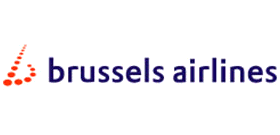 Brussels Airlines Honors 100 Years of Aviation Ties with Africa
Brussels Airlines Honors 100 Years of Aviation Ties with Africa
February 12, 2025, marks a century since the first-ever flight connecting Belgium and Africa—a historic milestone that continues to resonate within the aviation industry and beyond. On that day in 1925, three pioneering Belgian aviators—navigator Edmond Thieffry, pilot Léopold Roger, and engineer Jef de Bruycker—embarked on an ambitious journey from Brussels to Léopoldville (modern-day Kinshasa). Their aircraft, a Handley Page W.8F christened “Princesse Marie-José,” covered over 8,000 kilometers in 51 days, overcoming countless challenges to achieve a groundbreaking feat in aviation.
The journey was not without its trials. The crew faced unpredictable weather, mechanical failures, and the vast expanse of the African continent. Yet their determination and ingenuity ensured the mission’s success, laying the foundation for what would become a vital aviation link between Europe and Africa. This historic flight established a legacy that Brussels Airlines proudly upholds today, continuing to connect Africa and Europe with a robust network of routes.
Africa remains central to Brussels Airlines’ operations and vision. The airline currently serves 18 destinations across sub-Saharan Africa, including major cities and niche markets often overlooked by other carriers. These destinations include Banjul (The Gambia), Bujumbura (Burundi), Freetown (Sierra Leone), and Monrovia (Liberia), reflecting the airline’s dedication to connecting people, cultures, and economies. The recent addition of Nairobi in June 2024 further strengthened the airline’s African footprint, contributing to the Lufthansa Group’s impressive total of 56 destinations across sub-Saharan Africa.
Brussels Airlines’ African network primarily caters to Visiting Friends & Relatives (VFR) and trade traffic, reinforcing the deep economic and cultural ties between the two regions. By connecting underserved markets, the airline plays a critical role in fostering relationships and creating opportunities for growth on both sides of the continent. As the African Competence Center of the Lufthansa Group, Brussels Airlines leverages decades of expertise and local insights to deliver tailored services that meet the unique needs of its African routes. This includes maintaining city offices in several destinations and cultivating strong partnerships to remain deeply embedded in local markets.
The legacy of Belgian aviation in Africa dates back to the early 20th century, with key milestones paving the way for today’s seamless connectivity. In 1923, Sabena, Belgium’s national airline, began operations. Two years later, the historic first flight from Brussels to Léopoldville was completed. In 1935, Sabena launched the first regular passenger service between the two cities, a journey that took approximately five and a half days aboard a Fokker F-VII/3m aircraft. By 1960, advancements in aviation allowed for the first non-stop flight between Brussels and Léopoldville using a Boeing 707, reducing travel time significantly. After Sabena’s bankruptcy in 2001, Brussels Airlines emerged in 2007 as a successor, continuing the proud tradition of connecting Belgium and Africa.
Fast forward to 2025, and Brussels Airlines now operates daily non-stop flights between Brussels and Kinshasa in just 8 hours and 15 minutes aboard an Airbus A330-300. This modern connection is a far cry from the 51-day journey of 1925, yet the spirit of innovation and partnership remains unchanged. The airline’s commitment to fostering links between Africa and Europe is stronger than ever, ensuring that this historic relationship continues to flourish.
For African travel agents, Brussels Airlines’ extensive network offers valuable opportunities to meet the growing demand for travel between the two continents. By offering reliable services to both major hubs and underserved destinations, the airline provides a gateway to Europe while supporting Africa’s integration into the global economy. As the centennial of Belgian-African aviation is celebrated, Brussels Airlines remains a vital player in maintaining and strengthening this enduring connection.
